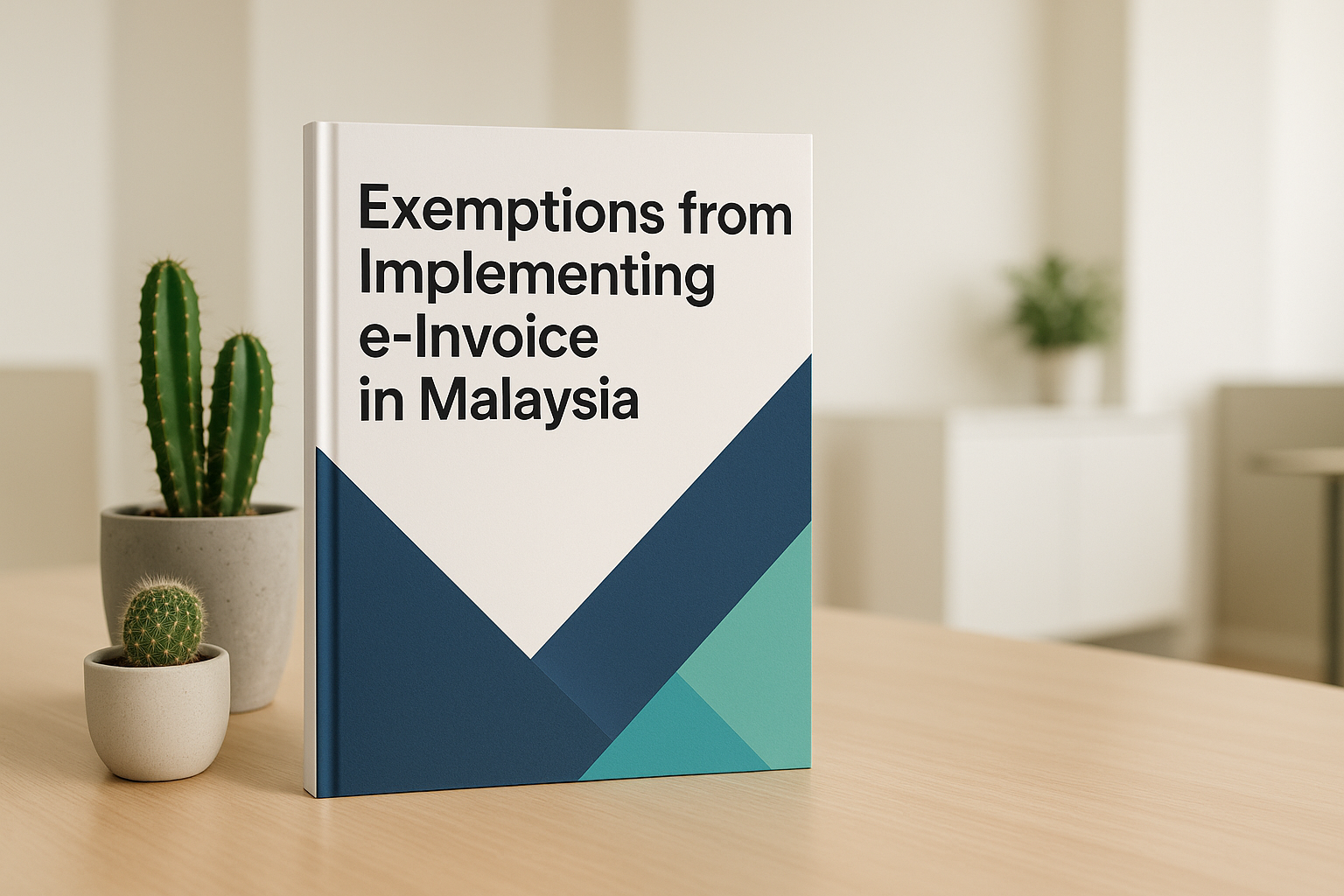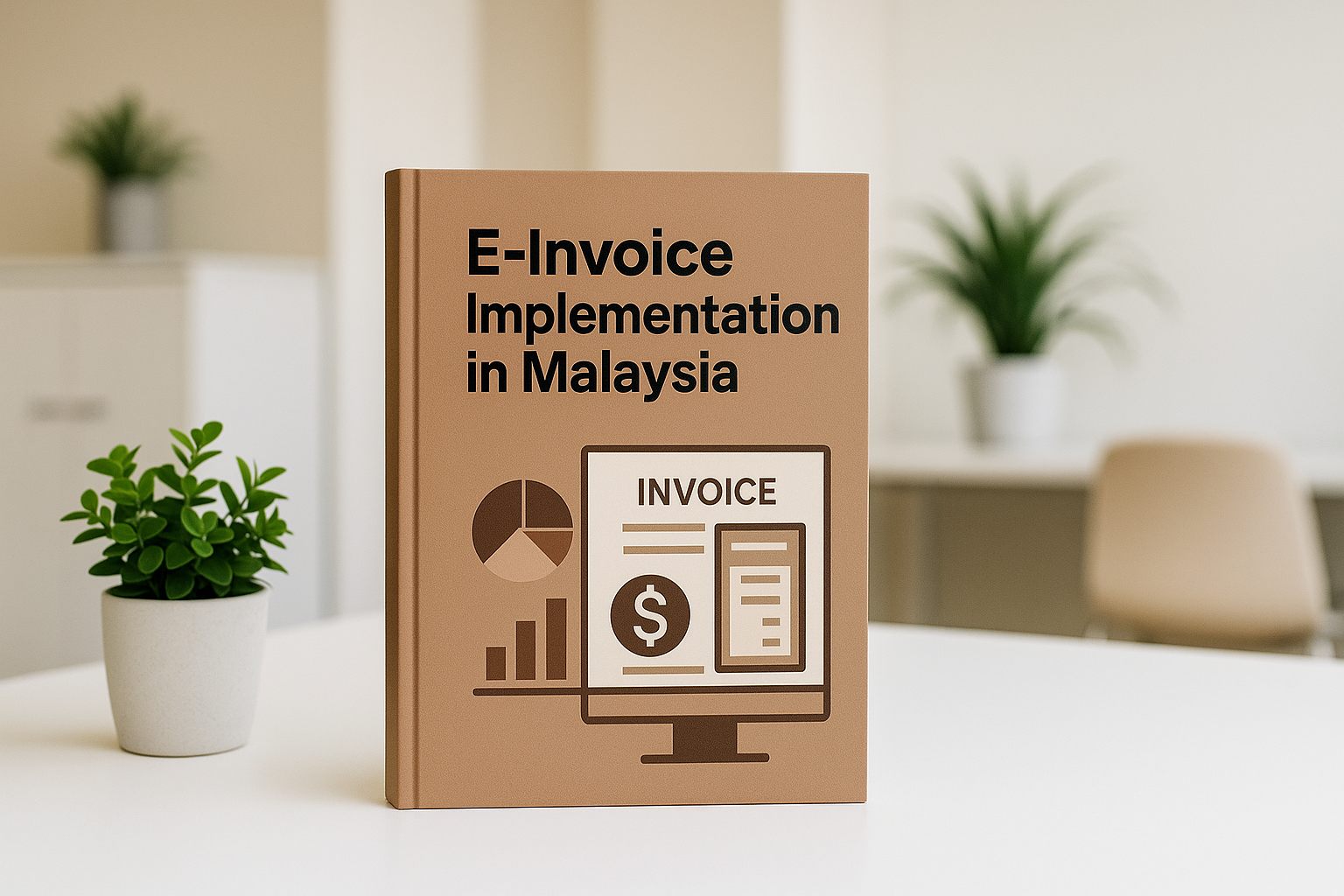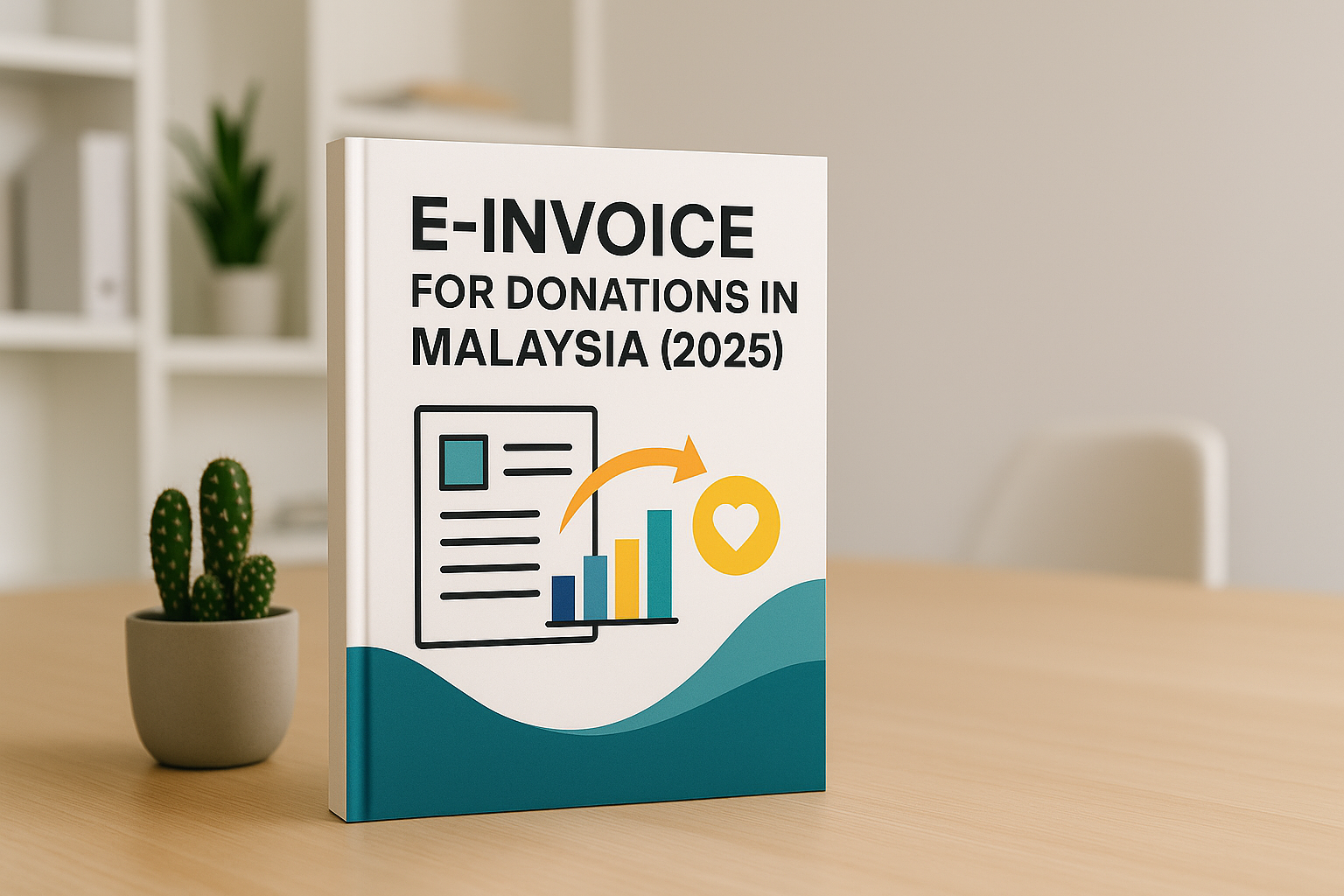Exemptions from Implementing e-Invoice in Malaysia
Embrace the future of tax compliance with e-Invoices. Learn about Malaysia’s digital transformation in tax reporting, including exemptions for certain businesses and individuals. Stay updated on key dates and ensure your business is ready for the upcoming e-Invoice mandates.

What is an e-Invoice?
An e-Invoice is a digital representation of a transaction between a supplier and a buyer, containing critical details like the buyer’s and supplier’s information, items purchased, prices, and applicable taxes. Unlike traditional paper invoices, e-Invoices are generated and transmitted electronically. This system improves the speed and accuracy of tax reporting, making it easier for businesses to comply with tax regulations.

Exemptions from Implementing e-Invoice
While the e-Invoice requirement applies to most businesses, the IRBM has provided certain exemptions for specific entities and situations. Let’s look at who is exempt:
Foreign Diplomatic Offices
Foreign diplomatic offices, such as embassies and consulates, are exempt from issuing e-Invoices. These entities are not engaged in typical taxable business activities under Malaysian law, so they do not need to comply with the e-Invoice requirements. For more information, Foreign Diplomatic Offices can refer to Appendix 3 of the e-Invoice General Guideline, which includes a list of international organizations that also fall under this exemption.
Individuals Not Conducting Business
Individuals who are not involved in any business activities are permanently exempt from issuing e-Invoices. This includes individuals selling personal items, conducting one-off transactions, or individual landlords who are not running a business.
For example, if someone is selling a piece of furniture to a business, the business must issue a self-billed e-Invoice on behalf of the individual, as the individual is exempt.
Statutory Bodies, Statutory Authorities, and Local Authorities
Statutory bodies, authorities, and local government entities are exempt from issuing e-Invoices for statutory functions. These include activities such as:
- Collection of fines, fees, levies, summons, penalties, etc.
- Transactions of goods and services performed before 1 July 2025.
However, after 1 July 2025, these entities will be required to issue e-Invoices for commercial transactions such as:
- Rental of community halls for events
- Fees for using sports facilities (swimming pools, stadiums)
- Sales of surplus equipment or vehicles.
International Organizations
International organizations are exempt from issuing e-Invoices for transactions involving goods or services performed before 1 July 2025. These organizations, typically involved in cross-border activities, do not fall under standard business taxation systems.
Small Businesses (Revenue Below RM1,000,000)
Small businesses with an annual turnover or revenue of less than RM1,000,000 are exempt from the e-Invoice requirement. This exemption helps micro, small, and medium-sized enterprises (MSMEs) by reducing the burden of compliance with the new system until they exceed the threshold.
Entities Owned by Exempted Individuals or Bodies
Although exempted individuals or statutory bodies are not required to issue e-Invoices, any commercial entities (such as companies or partnerships) owned by them will still need to comply with the e-Invoice requirements. This ensures that businesses, even if owned by exempt entities, are aligned with the national e-Invoice initiative.
Optional e-Invoice Implementation for Exempted Entities
While these exemptions apply, the IRBM encourages exempt entities to voluntarily implement e-Invoices as part of the government’s broader digital transformation efforts. This helps reduce administrative burdens and ensures businesses remain in line with digital tax processes as they grow.
Exemptions for Specific Types of Income and Expenses
In addition to the exemptions for entities, the IRBM has outlined that certain types of income and expenses are also excluded from the e-Invoice system, including:
- Employment income (wages and salaries)
- Pension payments
- Alimony payments
- Zakat (charitable contributions)
- Sales or transfer of shares not listed on a stock exchange, and certain securities transactions.
Additional Exemptions for Business Transactions
Businesses below the RM1,000,000 revenue threshold are allowed to issue normal receipts or invoices without the need for e-Invoices. If the business exceeds this threshold, it must start issuing e-Invoices, and penalties will apply for non-compliance.
For example, a small shop like Mak Cik Rosa’s with RM440,000 in revenue can issue normal receipts or invoices until her revenue exceeds the threshold.
How These Exemptions Impact Businesses
While some individuals and entities are exempt from issuing e-Invoices, businesses dealing with exempted entities are still required to issue e-Invoices in compliance with the government’s digital tax plan. Suppliers engaging in taxable transactions are responsible for ensuring they issue the correct e-Invoice, regardless of the buyer’s exempt status.
For instance, if a company buys goods from an individual not conducting business, the company will need to issue a self-billed e-Invoice to maintain compliance.
Sample Notice for MSMEs Exempted from e-Invoice
If you are an MSME and your business is exempt from issuing e-Invoices, you may need to notify your customers if they request an e-Invoice. Here is a sample notice that you can use:
Sample Notice Template
[Business Name]
[Business Address]
[City, Postal Code]
[Phone Number]
[Email Address]
[Website URL]
[Date]
Subject: Notice Regarding e-Invoice Requirements
Dear Valued Customer,
We hope this letter finds you well.
We would like to inform you that according to the Inland Revenue Board of Malaysia (IRBM) guidelines, our business is exempt from the e-Invoice requirement as our annual turnover/revenue is below RM1,000,000.
As per Section 1.6.1(e) of the e-Invoice guideline (version 4.4), businesses with a turnover below RM1,000,000 are not obligated to issue e-Invoices. However, we remain committed to assisting you with your tax documentation needs.
Our Actions:
- We will continue to provide our standard receipts or invoices, which remain valid for your record-keeping and tax filing purposes.
- If you specifically require an e-Invoice format, we will do our best to accommodate your request, provided it is practical and feasible for our current system.
- We are also exploring the possibility of voluntarily implementing e-Invoice capability in the future and will notify our customers once this becomes available.
We appreciate your understanding and continued support as we work towards providing the best service possible.
Should you have any further questions or require additional assistance, please do not hesitate to contact us at [Phone Number] or via email at [Email Address].
Thank you for your cooperation.
Warm regards,
[Your Name]
[Your Position]
[Business Name]
Key Dates
- August 1, 2024: e-Invoice mandate for taxpayers with annual revenue ≥ RM100 million
- January 1, 2025: e-Invoice mandate for all taxpayers
- July 1, 2025: Statutory bodies must issue e-Invoices for commercial transactions
Conclusion
The e-Invoice system is part of Malaysia’s broader strategy to modernize its tax framework and improve compliance. While most businesses are required to implement e-Invoices, the IRBM has provided specific exemptions for government bodies, small businesses, and individuals not conducting business. Businesses must remain vigilant about these exemptions and ensure they comply with e-Invoice requirements once they exceed the revenue threshold or engage with taxable entities.
For businesses, understanding who is exempt and the criteria for compliance will help navigate the transition to e-Invoices smoothly. Additionally, businesses that fall under the exemptions are still encouraged to adopt e-Invoices voluntarily to align with the government’s push for digital transformation.
Learn E-Invoicing with Our Expert-Led Classes
Ready to master e-invoicing and streamline your business? Join our comprehensive class and get hands-on guidance!


